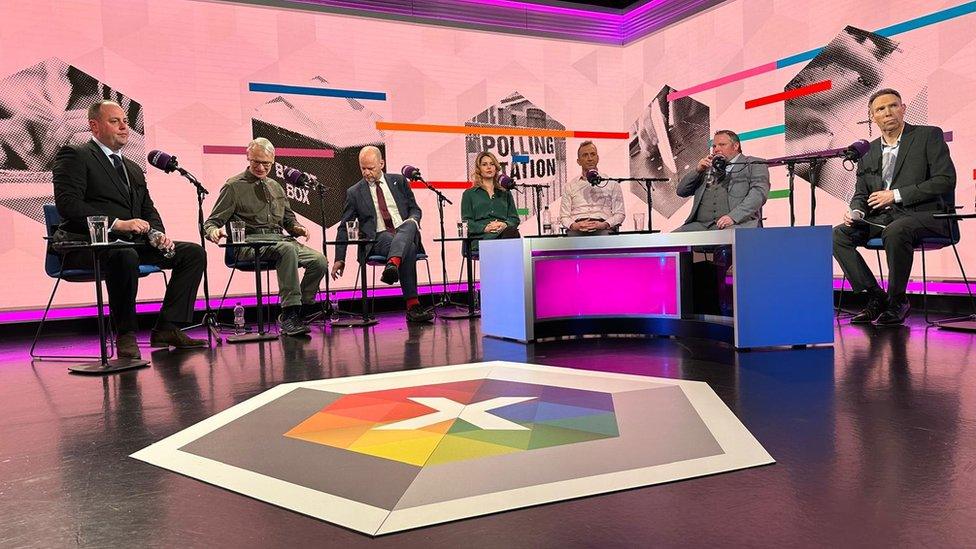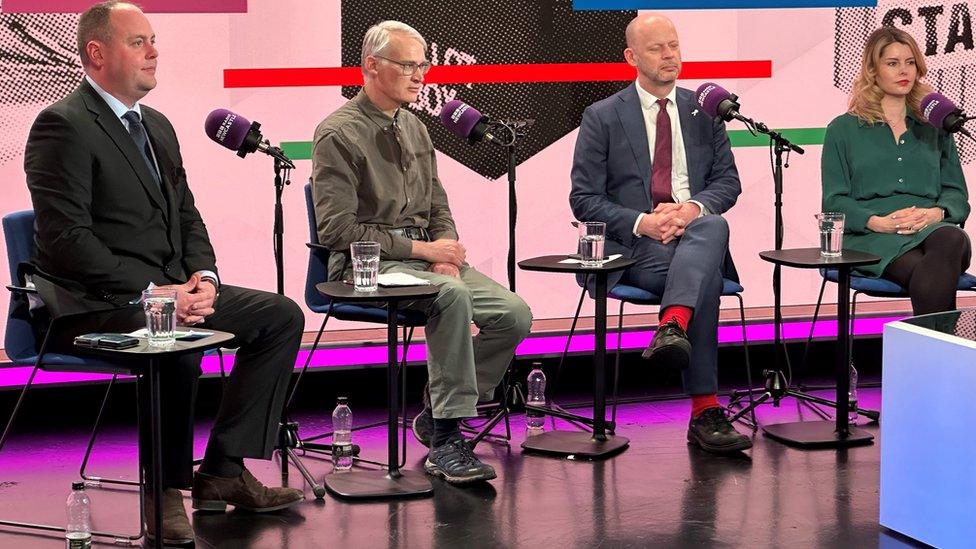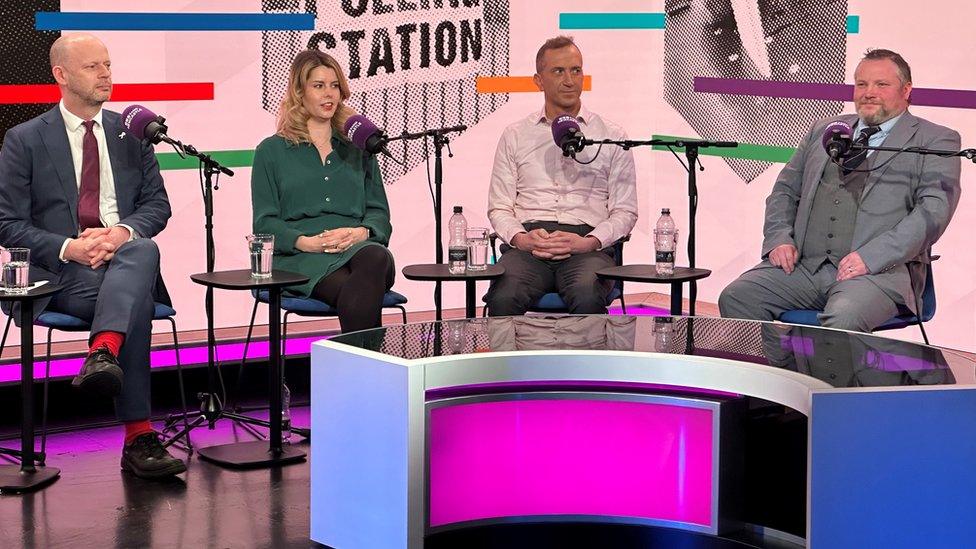North East mayor candidates debate bus plan
- Published

The six candidates took part in a debate hosted by BBC North East and Cumbria political editor Richard Moss
A dispute over how to improve bus services dominated a debate between the six North East mayoral candidates.
In the BBC's hustings, the candidates were quizzed on how they would improve transport, support high streets and tackle a housing shortage across the region.
The North East mayor will be a new role covering from County Durham to Northumberland with devolved powers from the government.
The election will be held on 2 May.
The candidates listed alphabetically are:
They were asked seven questions by members of the public, with the need to improve transport a recurring theme.
Anne Casson from Newcastle asked: "How will the new mayor provide a better, more reliable, and more affordable bus service?"
Mr Driscoll said a "fully integrated public transport system" was needed which should be under the mayor's control.

The candidates were asked questions on a variety of topics
But Mr Renner-Thompson said bringing that "crazy idea" was tantamount to "nationalisation" which could be a burden to taxpayers, adding the solution was to make the current system using private companies better.
Mr Gray said the buses need to be regulated by the mayor with the "timetables and routes based on need rather than bus company interest".
He said private operators should still be involved but under mayoral control.
Dr King said he would "work with private operators" and provide funding for "marginal services".
Mr Donaghy suggested a "hybrid" version where the mayor would take control of the "less profitable routes" which were still "vital services".
Ms McGuinness said it was "urgent" to get control of the buses under a "single brand".

All the candidates came to the BBC studios in Newcastle for the debate
Ms McGuiness and Mr Driscoll also clashed over on demand services in rural areas, where people book transport.
Mr Driscoll said it "worked successfully" and was "financially viable" but but Ms McGuinness said it "doesn't work" and what was needed was a "reliable" and "proper transport service".

Analysis: Sparks but no knockouts
By Luke Walton, BBC North East and Cumbria political correspondent
No knock-out blows today but there were plenty of sparks, particularly between two of the frontrunners, Labour's Kim McGuinness and independent Jamie Driscoll, the current North of Tyne Mayor and until recently Labour himself.
Ms McGuinness insisted she would work with and, if necessary, stand up to a Labour Government (if one were elected) while highlighting her plans to improve transport, housing and the economy.
Mr Driscoll focused on his record as mayor - pointing to what he sees as big achievements in areas such as jobs and investment.
He says he has shown he can work with ministers - whatever their political stripe.
Meanwhile Conservative Guy Renner-Thompson is clearly hoping the clash between the Labour candidate and a man who was previously Labour, will allow him to come through the middle.

The candidates all broadly agreed there was a need for more affordable housing, but there was disagreement of the best way of achieving that.
Mr King, who repeatedly said he wanted to build "Europe's largest onshore windfarm" pledged to build 100,000 new homes using compulsory purchase powers to "unlock land".
But Mr Gray said it was "far more important to focus on the housing we've already got" and make homes much more energy efficient and cheaper to run, as well as build new housing on brownfield sites.
Ms McGuinness called for more social housing to help the 66,000 people on the waiting list while Mr Driscoll said the "number one solution" was to build more houses.
Mr Renner-Thompson said he wanted to increase industries and wages in the region so people could afford homes while Mr Donaghy said more affordable housing needed to be built and "existing stocks" required improvement.
BBC Radio Tees will host a debate for the three Tees Valley mayoral candidates on 24 April.

Follow BBC North East on Facebook, external, X (formerly Twitter), , externaland Instagram, external. Send your story ideas to northeastandcumbria@bbc.co.uk, external.
- Published18 April 2024